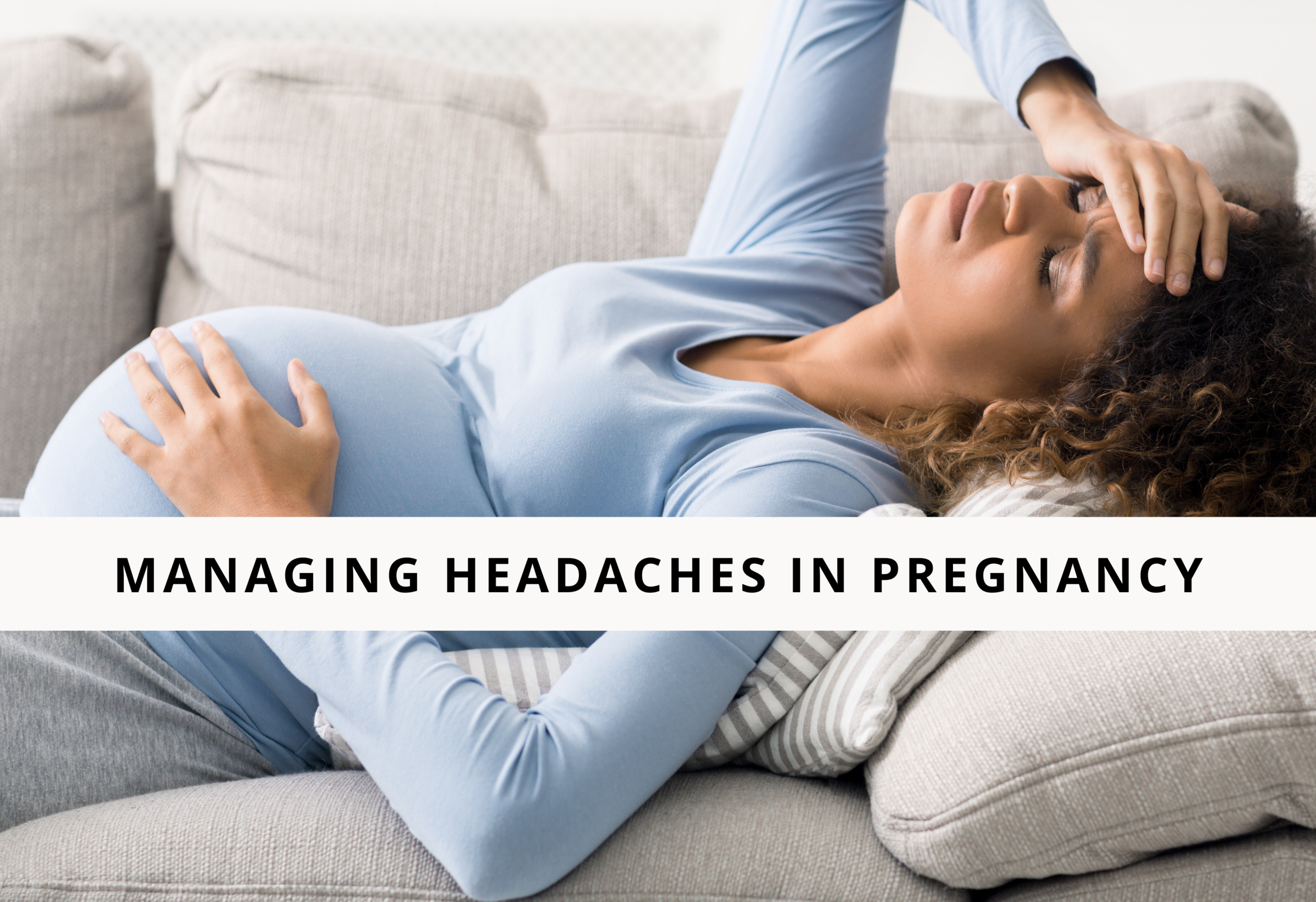Table of Contents
Managing Headaches During Pregnancy: Understanding, Relief, and When to Seek Help
Headaches are a common discomfort many expect during pregnancy, ranging from mild tension headaches to more severe migraines. While often a result of simple factors like sinus congestion, allergies, dehydration, or the sudden cut-off of caffeine, it’s important to distinguish between these benign headaches and those signaling more serious conditions, such as preeclampsia.
Understanding Pregnancy Headaches
The majority of headaches in pregnancy are tension-related, responding well to basic relief measures. Interestingly, those with a history of migraines might find some respite during pregnancy, with a decrease in both the frequency and severity of their migraines. Despite this, vigilance is key, as headaches can sometimes indicate underlying medical issues.
How to Alleviate Headaches in Pregnancy
1. Massage Therapy: Gentle massage of the head, neck, and back can alleviate tension and reduce headache severity.
2. Acupuncture: This traditional therapy can offer relief for some pregnant individuals suffering from headaches.
3. Warm Compress: Applying a warm compress to the base of the head, neck, or forehead can help ease headache pain.
4. Relaxation Exercises: Techniques such as deep breathing or meditation can reduce stress-induced headaches.
5. Regular Exercise: Activities like 30 minutes of brisk walking can not only reduce headache frequency but also improve overall health.
6. Adequate Rest: Ensuring sufficient sleep and rest is crucial in managing headaches during pregnancy.
7. Avoid Triggers: Identifying and avoiding environmental and dietary headache triggers can prevent the onset of headaches. This includes strong smells, skipping meals, and specific food items known to trigger headaches, such as processed meats and artificial sweeteners.
8. Hydration and Nutrition: Keeping well-hydrated and maintaining stable blood sugar levels through regular, balanced meals can prevent headaches caused by dehydration and hypoglycemia.
When To Call The Midwife
While most headaches in pregnancy are benign, certain situations warrant immediate medical attention:
- Severe Headaches: If headaches are severe and do not respond to comfort measures or over-the-counter analgesia.
- New Onset with Neurological Symptoms: Any new headache accompanied by symptoms such as visual disturbances, severe swelling, sudden weight gain, or upper abdominal pain.
- Symptoms of Preeclampsia: Headaches accompanied by high blood pressure, proteinuria, or any signs suggesting preeclampsia require urgent evaluation.
- Sudden, Severe Onset: A headache that is abrupt and intense can indicate serious neurological conditions and needs immediate assessment.
Understanding the nature of your headaches during pregnancy and implementing these self-care measures can significantly improve your comfort. However, always stay attentive to your body’s signals and don’t hesitate to reach out to your healthcare provider with any concerns, ensuring both your safety and that of your baby.
Why am I experiencing more headaches now that I'm pregnant?
Headaches during pregnancy can be due to several factors, including hormonal changes, particularly the increase in progesterone, which can cause tension headaches. Other common causes include dehydration, caffeine withdrawal if you’ve recently reduced your intake, changes in blood circulation, and stress.
Are headaches during the first trimester normal?
Yes, headaches are quite common in the first trimester due to the initial surge in pregnancy hormones and adjustments your body is making to support the growing fetus. However, most individuals notice a decrease in the frequency and intensity of headaches as their pregnancy progresses.
What natural remedies can help alleviate headaches during pregnancy?
Several holistic and natural approaches can help manage headaches safely during pregnancy:
- Stay Hydrated: Drink plenty of water throughout the day.
- Rest and Relaxation: Ensure adequate sleep and practice stress-relief techniques such as meditation or prenatal yoga.
- Massage: Gentle massage of the neck, shoulders, and head can alleviate tension. Add a few drops of your favorite calming essentual oil to your carrier massage oil for added benefits!
- Warm or Cold Compress: Apply a warm compress to relax muscles or a cold pack to numb pain at the headache site.
- Aromatherapy: Essential oils like lavender or peppermint (used in a diffuser or applied diluted to temples) can offer relief. However, some essential oils are not recommended during pregnancy, so consult with a professional before use. If you are interested in Aromatherapy and essential oils, Learn more about My Top 4 Favorite Essential Oils For Labor And Birth.
How can I holistically manage headaches during pregnancy?
In addition to the methods mentioned above, holistic management of headaches during pregnancy can include:
- Acupuncture: Some find acupuncture effective for tension relief and headache prevention.
- Proper Posture: Maintaining good posture, especially if you’re sitting for extended periods, can help prevent tension headaches.
- Diet Adjustments: Eating small, frequent meals to maintain stable blood sugar levels and incorporating magnesium-rich foods, like leafy greens and nuts, may help.
- Breathing Exercises: Deep breathing techniques can reduce stress-induced headaches.
- Herbal Teas: Certain herbal teas, like ginger tea, can alleviate headache symptoms. However, it’s important to consult with your midwife or healthcare provider before using herbal remedies, as not all are safe during pregnancy.
These natural and holistic approaches can provide relief from headaches during pregnancy while also promoting overall well-being. Always discuss any new treatment or remedy with your healthcare provider to ensure it’s safe for you and your baby.
Is it safe to exercise if I'm getting headaches during pregnancy?
Yes, regular, moderate exercise like walking or prenatal yoga can actually help reduce headache frequency and severity by improving circulation and reducing stress. Always consult with your midwife or healthcare provider before starting a new exercise regimen, especially if your headaches are severe.
Can my diet affect headaches during pregnancy?
Absolutely. Certain foods can trigger headaches in some people. Common dietary triggers include processed meats containing nitrates, aged cheeses, foods with MSG, chocolate, and artificial sweeteners. Paying attention to what you eat and avoiding known triggers can help manage headaches. Additionally, maintaining a balanced diet and keeping hydrated can prevent headaches caused by low blood sugar and dehydration.
Additional Resources about Headaches in Pregnancy
- Headaches During Pregnancy: What To Know from the Cleveland Clinic
- Headaches in Pregnancy and Postpartum from ACOG
- When to Worry About a Pregnancy Headache from Parents Magazine
- Learn more about Common Pregnancy Discomforts





